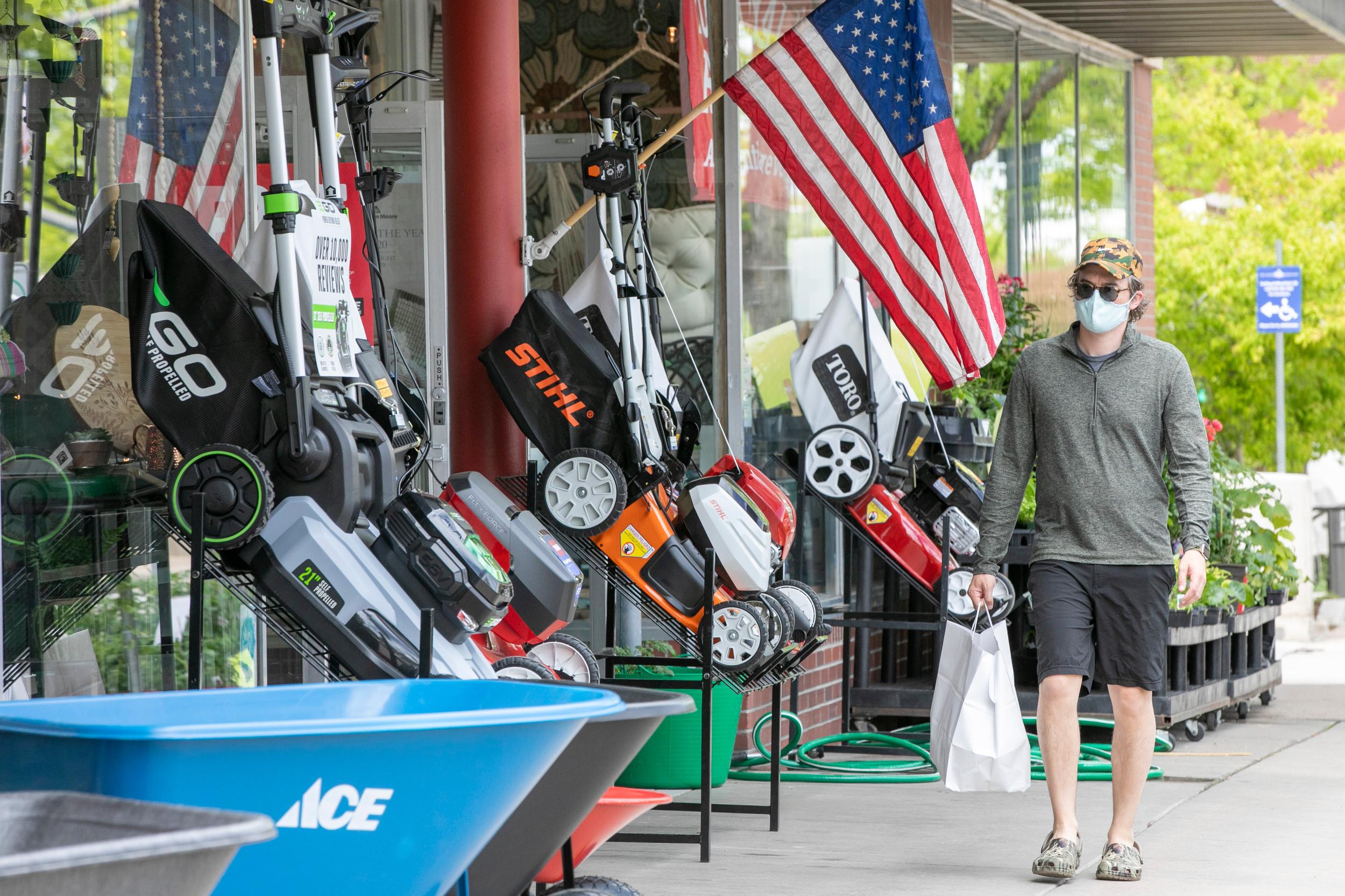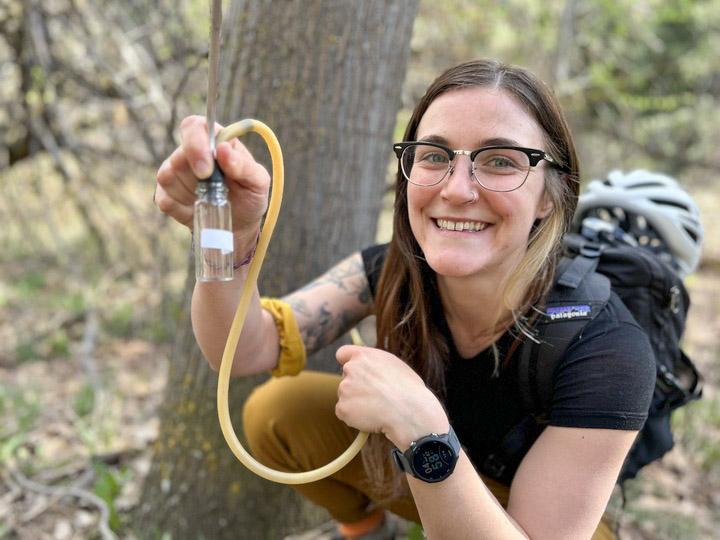
Colorado regulators gave preliminary approval to new limits on gas-powered lawn and garden equipment on Friday, but the rules fall far short of ambitious proposals pushed for by some local governments and air quality advocates.
After three days of tense debate, the Air Quality Control Commission, an eight-member panel appointed by the governor, gave its initial blessing to rules to restrict public entities from using smaller gas-powered tools — like lawnmowers, leaf blowers, trimmers and chainsaws — during the summer starting in 2025.
The new rules apply to local governments and school districts along the Front Range and all state-owned properties. The state will now make line edits ahead of a final vote in February.
At the same time, the commission scuttled a proposal to ban Front Range retailers from selling handheld gas-powered tools. It also decided against placing any new regulations on commercial landscapers.
“We’re going to have to go further and revisit this,” said Kirsten Schatz, a clean air advocate for the Colorado Public Interest Research Group. “There’s more that we can do in the next couple of years, but we’re glad to see the state on track to take action on this really harmful form of pollution.”
While the action marks Colorado’s most aggressive effort so far to clamp down on pollution from gas-powered equipment, regulators stressed it will be implemented with a “soft enforcement strategy,” meaning violators won’t face any fines or penalties for failing to shift to electric alternatives.
The new regulations come as the state considers new strategies to cut ground-level ozone levels in a nine-county region along the Front Range. Last year, the U.S. Environmental Protection Agency designated the region as a “severe” air quality violator for repeatedly failing to cut pollution levels below federal health standards for more than a decade.
While ozone guards against ultraviolet radiation high up in the atmosphere, it’s a danger to human health closer to ground level. Inhaling the well-studied lung irritant — identifiable as smog and haze each summer — can worsen respiratory issues and shorten lives.
Shifting to electric lawn equipment could be a key part of a strategy to clean up the region’s air.
That’s because gas-powered tools pump out large amounts of nitrogen dioxides and volatile organic compounds, two ingredients that react in the atmosphere to form ozone on hot, sunny days. In fact, state models suggest the tools represent the third largest source of smog-forming pollution on the Front Range. Projections further suggest suggest lawn care will be a larger source of ozone ingredients than cars by 2026.
To address the issue, the commissioners considered two different proposals. The less aggressive version came from the state’s air quality enforcement agency. A tougher alternative from the Regional Air Quality Council, a nonprofit tasked with drafting policies to bring the Front Range into compliance with federal air quality standards.
The organization has set a goal to attain federal compliance by 2027. To get there, it estimates the Front Range must cut the total tonnage of smog-forming pollution by 20 percent compared to current emission levels.
It included the proposed sales ban as one way to bring the goal within reach. In its presentation to commissioners, Mark Silverstein, the executive director of the RAQC, noted California, Hawaii and Washington D.C. have each enacted similar policies to help combat air pollution.
But it quickly became apparent the policy idea had little traction among commissioners. Multiple members said the market is already shifting away from gas-powered tools, noting Home Depot recently announced it expects 85 percent of the lawn care equipment it sells to run on electricity by 2028.
There was more disagreement over whether to place use limits on commercial lawn care companies. Gary Arnold, a union leader serving as the business manager of Denver Pipefitters Local 208, said businesses targeted by the proposed regulations weren’t given sufficient opportunity for input.
“This is going to have a direct effect on people’s lives, and we’re doing it without any of them in the room,” Arnold said. “That’s really what I’m struggling with the most.”
That comment drew a stiff rebuke from Elise Jones, a former Boulder County commissioner now serving on the air quality board. She said Colorado has repeatedly failed to reduce ozone levels by shying away from action on major sources of smog pollution.
“We need to push a little bit harder. Everything isn’t going to be easy and comfortable,” Jones said.
The commission ended up voting 5-3 against regulating commercial landscapers, but Jones did manage to secure a commitment to revisit the controversy.
In the draft regulation, the commission called for another rulemaking hearing to consider regulations for commercial lawn care companies no later than the end of 2025. It also directs the state’s air quality division to monitor the sales of electric lawn care tools and reconsider restrictions if the market isn’t shifting away from fossil fuels quickly enough.








